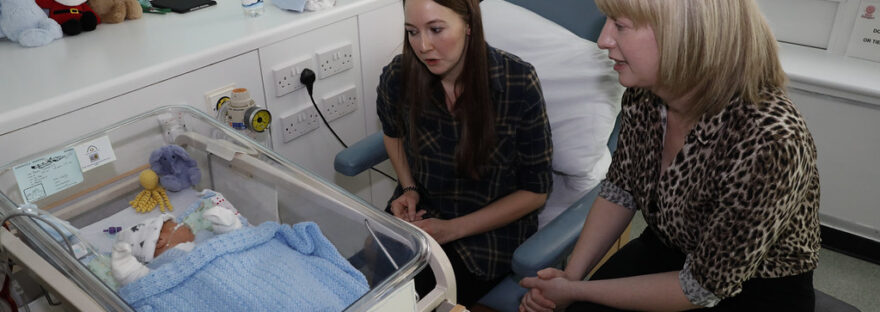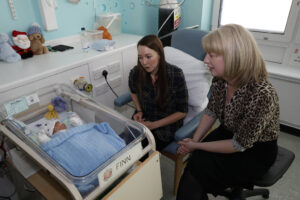ADVOCATE FOR YOUR BABY IN THE NICU
The NICU is one of the most intimidating places for a new parent. It is filled with beeping technology, wires and multiple professionals all of whom seem to be using words you do not understand, not to mention the heartbreaking and scary experience of having a child in NICU.
An NICU is a very controlled environment, a lot of the time parents don’t feel like they can voice an opinion or ask a question. The professionals around them seem to be too busy and seem to know what baby needs better than the parent! However a parent is the best advocate for any child, no one can do that job better than you. Here are some tips on communicating with professionals in the NICU:
- Do not be afraid of asking questions during daily counseling sessions. If the professional on the team uses a term/jargon you do not understand ask them to elaborate and explain what it means.
- Make lists, you will come up with questions or have doubts when the doctor is not around. It helps to write things down so that you don’t forget to ask them when you do get the opportunity. It also helps to prioritize concerns, so that you can bring up these concerns in the beginning of the appointment.
- Make notes during the appointment, so that you can convey accurate information to your partner if he/she is not present during the conversation. These notes will also help you keep track of what the medical professional thinks should be the outcome of an intervention, that way if a intervention is not working as it should you can quickly advocate for your baby.
- If you feel your concerns have not been addressed, state this clearly. You can go over the details again or ask for more information from your doctor. If necessary ask for a second opinion.

- Ask your doctor if your baby is stable enough to do kangaroo care (skin to skin contact between parent and child), kangaroo care has been shown to have a lot of benefits for low birth-weight and premature babies including improved cardiorespiratory and temperature stability and better sleep, in addition to being beneficial to the breastfeeding relationship.
- Ask for help with breastfeeding, try to find a lactation consultant who can help you latch baby or pump for baby. Breast milk will help your baby’s tummy mature and help fight infections. Breastfeeding is also automatic skin to skin! In situations where the mother is unable to breastfeed or pump for baby ask if the hospital has a milk bank.
- Premature babies develop differently than full term babies. It is important that parents advocate for their children and ensure that regular developmental screens are conducted so that any delay can be caught early. Ask your doctor for referrals when it is time to take baby home from the hospital.
Parents of preemies share your tips here: What questions did you ask? What questions did you wish you had asked? Did you take a list of questions with you? What to expect on the first visit? What to do if the professional is using too much medical jargon?
Happy Parenting
Lalitha Acharya
11/25/2015
—————————————————————————————————————————————–
We would like to thank Lalitha Acharya for writing this post. Lalitha is mother to a 2 year old and a psychologist with a M.S in Clinical Psychology from the US. She has experience working with traumatized children and their families and running groups for individuals diagnosed with severe mental illnesses in both inpatient and out patient setting.


